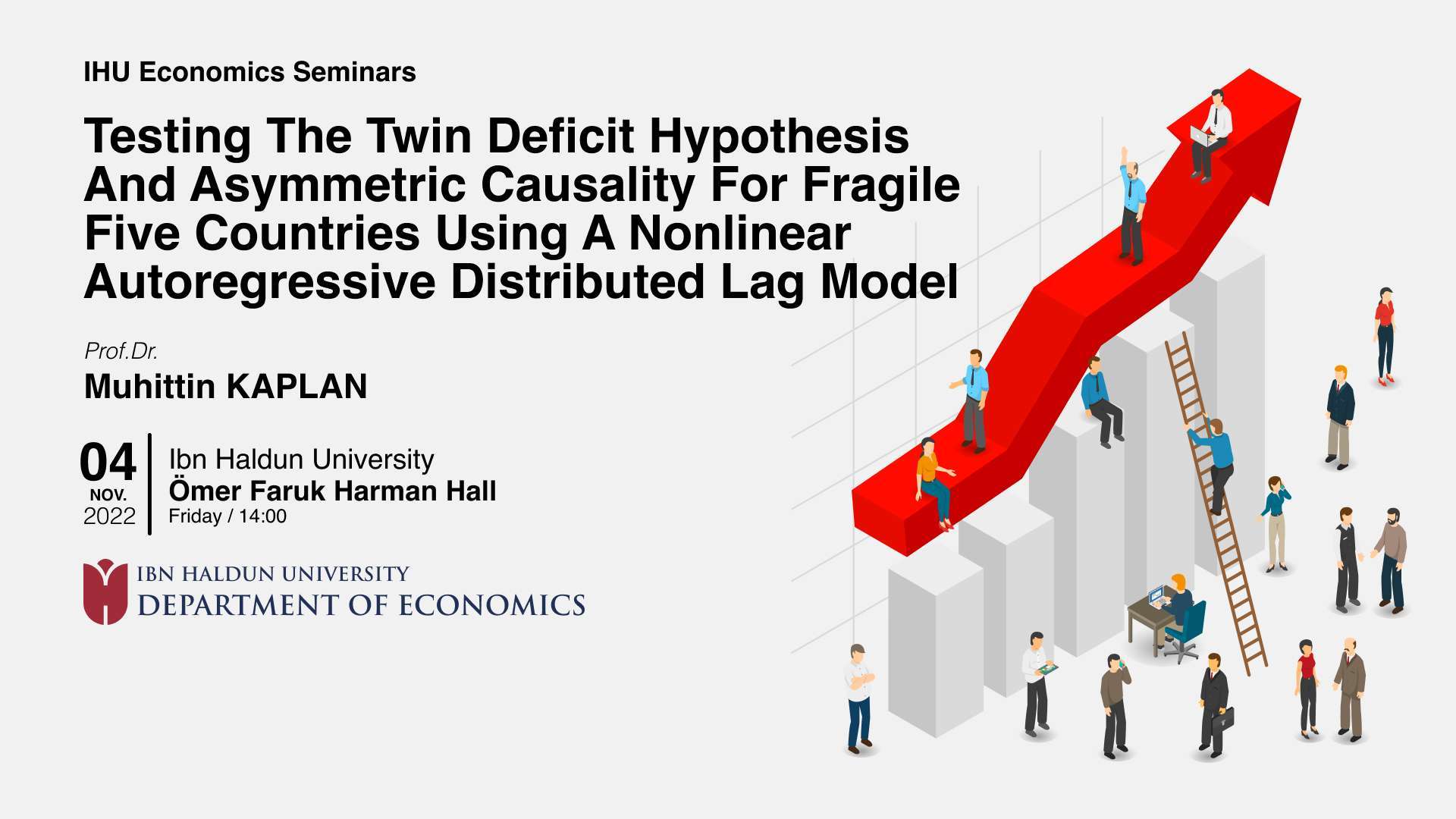


Prof. Muhittin Kaplan will be presenting a paper on "Testing The Twin Deficit Hypothesis And Asymmetric Causality for Fragile Five Countries Using A Nonlinear Autoregressive Distributed Lag Model" at this week's IHU Economic Seminar Series. The abstract can be found herewith.
Abstract
This study aims to examine the validity of the twin deficit (budget deficit and current account deficit) hypothesis for Fragile Five Countries (Brazil, India, Indonesia, South Africa, and Turkey) using nonlinear autoregressive distributed lag (NARDL) model. In this sense, this study considers asymmetric responses of government deficits on current account deficits, vice versa, in testing the validity of the twin deficit hypothesis for Fragile Five Countries over the period of 1980-2021. Estimation results showed that while the long-run relationship between current account deficit and budget deficit is rejected by the linear ARDL bond testing approach, the NARDL approach supports the presence of counteracting relationship among the variables of current account model (of budget deficit model) for Brazil, South Africa and Turkey (for all five countries except South Africa). The results also showed that while a reduction () in current account deficit leads to an increase in budget deficit, deterioration () of current account deficit leads to a decrease in budget deficit for Turkey in the long-run. For other countries, the positive and negative shocks to current account deficit have no significant effect on budget deficit in the long-run. Additionally, the results obtained from symmetry tests indicate that the effects of positive and negative changes in budget deficit on current effect differs significantly in the short-run and in the long-run for Turkey and South Africa, they differ only in the short-run in the case of Brazil.
Lastly, the findings of this study related to cointegration test results suggest that current account deficits seem to be more important problem for the Fragile Five countries compared to budget deficit except for South Africa. For this reason, policies that target current account deficits should come first and fiscal policy targeting budget deficit second when policy makers prioritize stabilization policies. Interestingly, both policies seem to be important in the Turkish case.